Joint Children, Young People and Families and Young Adults Round Table – October 2024
September 30-1 October 2024 may well go down as historic dates! It was when two of our national round table groups (Young Adults and Children, Young People and Families) gathered together for the first time at Yarnfield, Staffordshire.
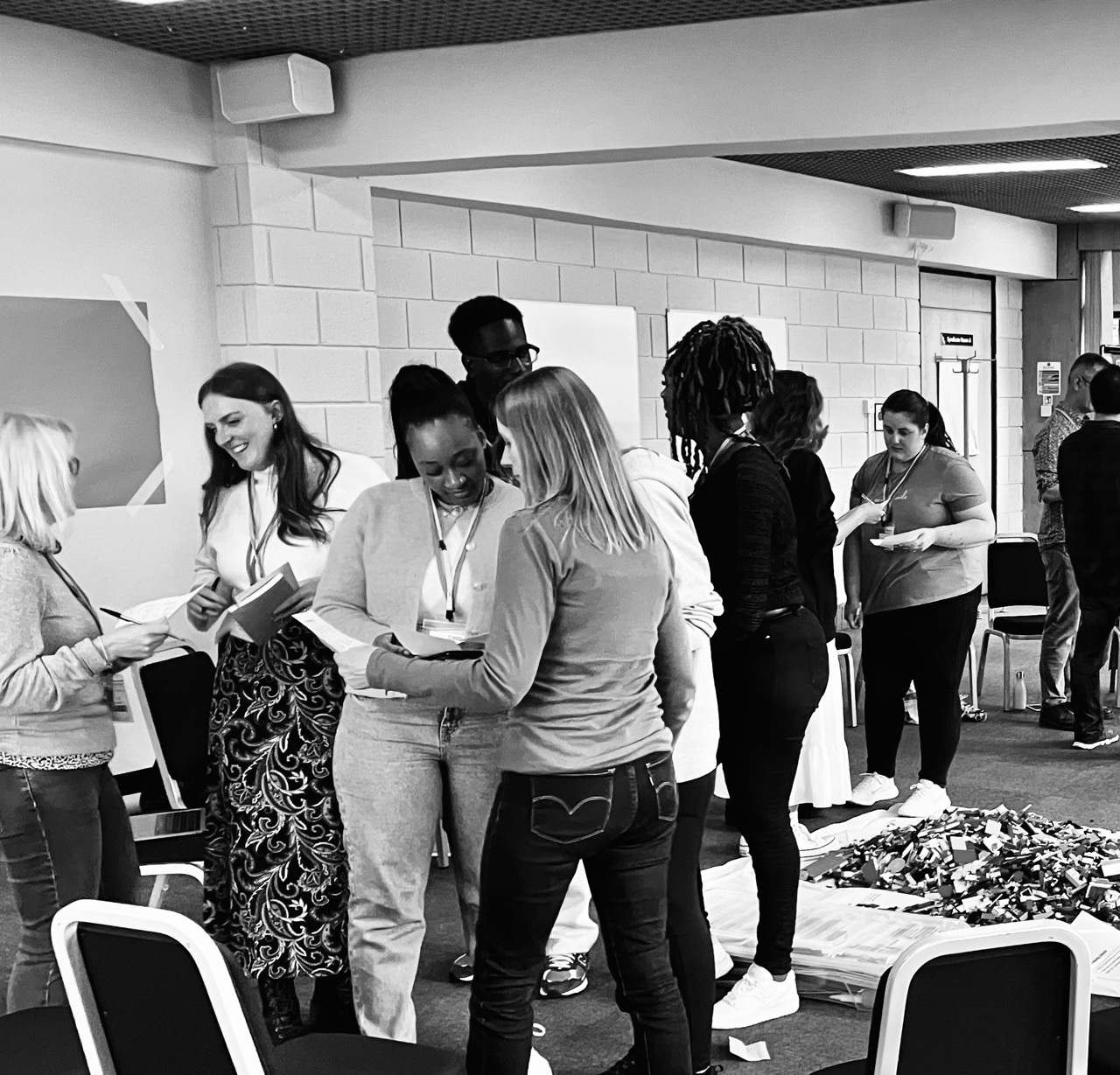
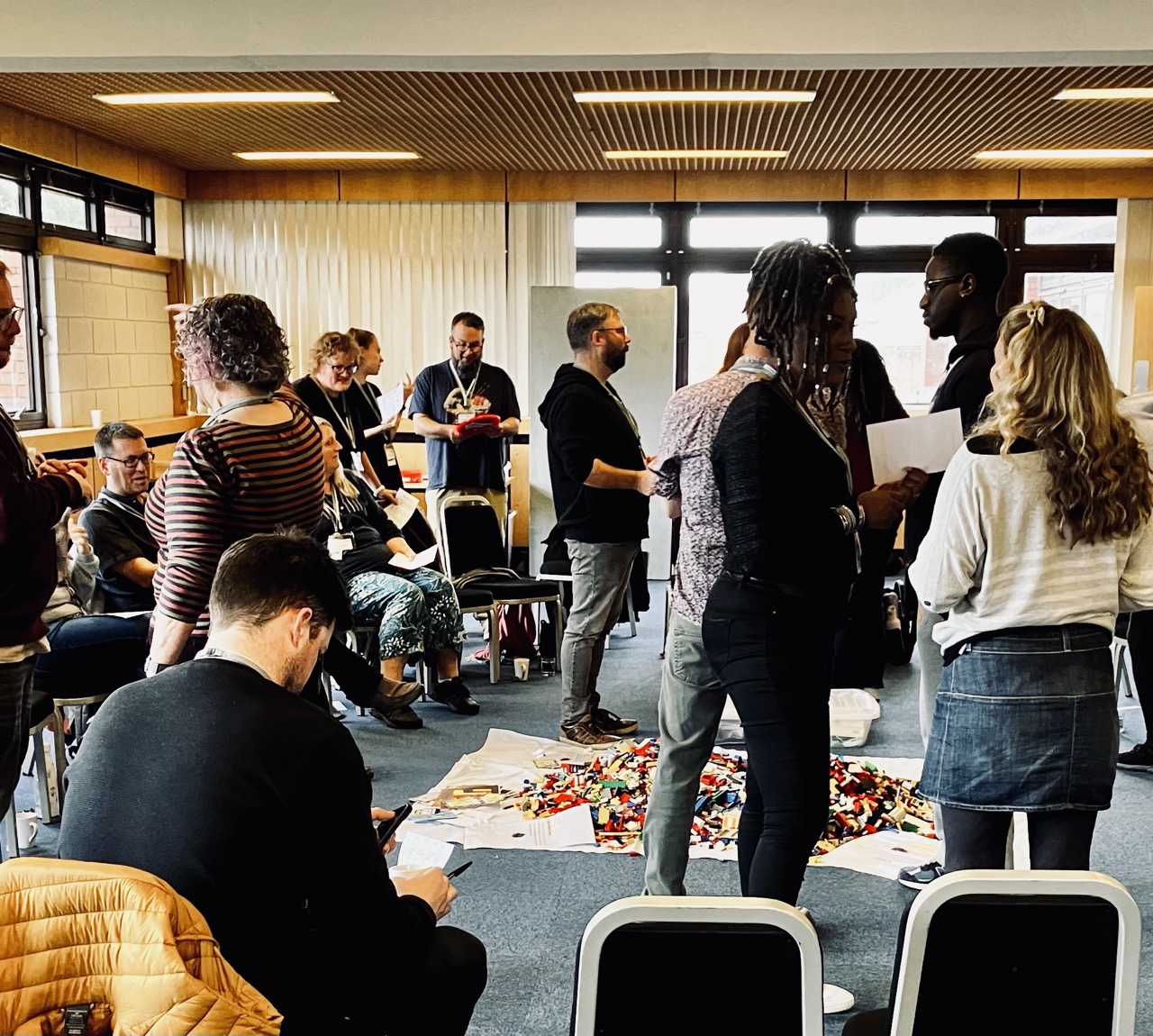 In worship led by Simon Cragg and Jonny Hirst, sessions led by Jodie Thorpe, Clare Hooper, Amie Buhari, Andrew Ginn, Isabella Senior and Mike Lowe with group discernment it was a very positive space. Both groups affirmed this by deciding that all future onsite gatherings will be at the same time. Whilst there are distinct identities and callings for both groups, there is significant overlap and benefits in coming together.
In worship led by Simon Cragg and Jonny Hirst, sessions led by Jodie Thorpe, Clare Hooper, Amie Buhari, Andrew Ginn, Isabella Senior and Mike Lowe with group discernment it was a very positive space. Both groups affirmed this by deciding that all future onsite gatherings will be at the same time. Whilst there are distinct identities and callings for both groups, there is significant overlap and benefits in coming together.
The main reflective focus was ‘transitions’. This considered how our experiences from birth onwards continue to shape who we are throughout our adult lives. The groups considered what is our calling as Christians in creating a Christ shaped space as people grow up? More on this later in the report.
Both Round Tables spend time reflecting on their own areas of work, including responses to Project Violet.
The groups are experiencing transitions of their own with new people joining and long standing members being called to different places. We said our goodbyes to Jodie Thorpe, Andrew Ginn and Simon Cragg whom have blessed greatly over the years.
Below are the key questions and reflections made in each of our sessions, material you may want to use in your church or context.
As mentioned during our conversations, Inner Child Theory, developed by Carl Jung helps unpack the idea that we hold distinctly to our formative years Deep down we are still our 3-, 6-, 10- and 14-year-old self. We don’t leave those development years like a memory; they form who we are fundamentally. The image of Russian Dolls can be helpful here.
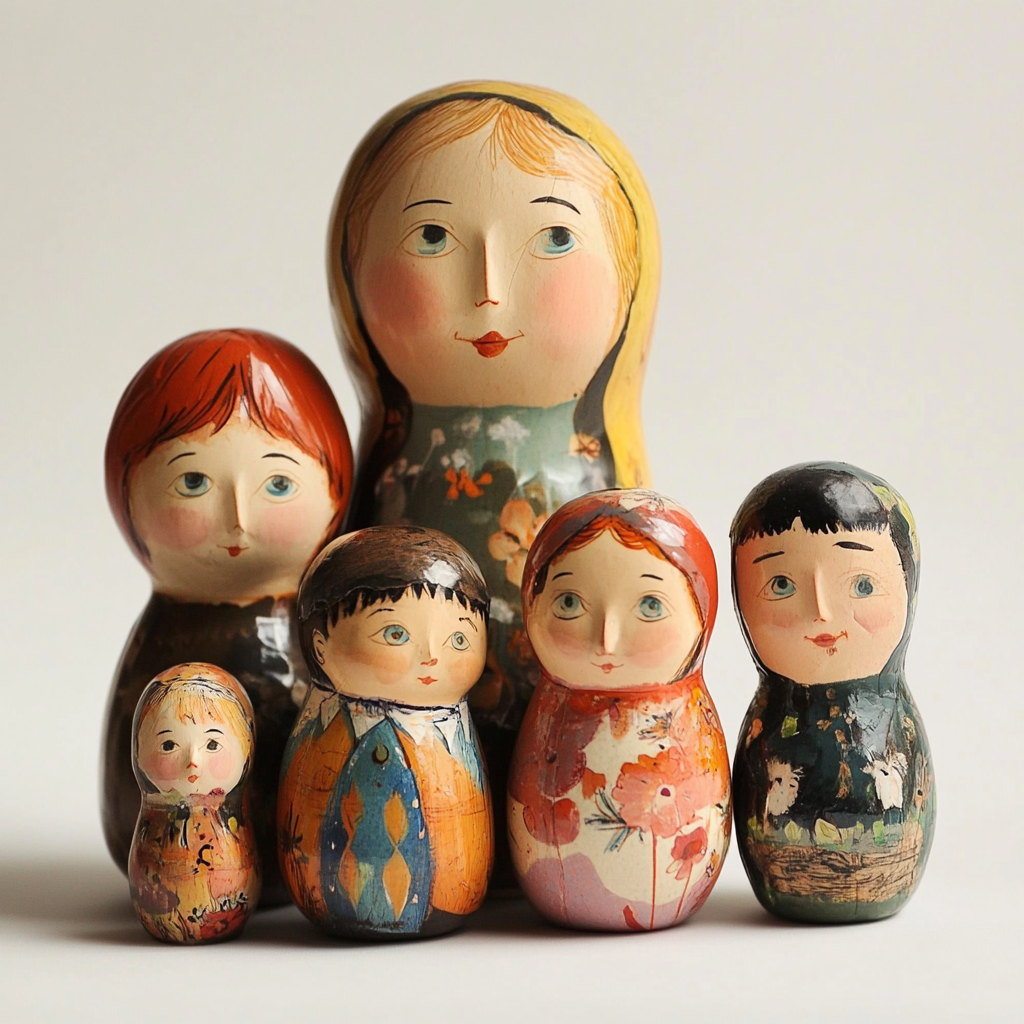 To help us further we considered the formative years of Jesus and how they informed the person he would become. This was explored wonderfully by Vicky Baker using the Faces of Easter Godly Play. We reflected gradually over three sessions on the transitions and stages of Jesus’ life until we had a full picture of the incarnation.
‘There is no junior Holy Spirit’
To help us further we considered the formative years of Jesus and how they informed the person he would become. This was explored wonderfully by Vicky Baker using the Faces of Easter Godly Play. We reflected gradually over three sessions on the transitions and stages of Jesus’ life until we had a full picture of the incarnation.
‘There is no junior Holy Spirit’
Jodie Thorpe looked years 0-12 and reflected on the question
what does it look like to welcome the child into our settings?
Jodie invited the group to share different experiences of when they didn’t feel heard as children and reflecting on the impact that has had on them. We looked at different Bible passages that make it clear that Jesus heard and welcomed children. “God become a child in the person of Jesus” and “there is no junior Holy Spirit” were some of the comments made. In small groups, discussion continued around these questions below:
-
How do we cultivate childlikeness?
-
How can we as adults learn from children?
-
What does it look like to welcome and give a voice to children in your own practice?
We talked about the importance of being fully present, authenticity, honesty and playfulness in our own lives and ministries. Asking more ‘why’s’ in the spaces and places where children are not. Being intentional in getting to know children’s hearts and having space for play and conversations without an agenda. All have an intergenerational responsibility to welcome. It’s key to create a safe space for exploration where the journey is the goal, not the end result.
How accessible do we make the cross?
Clare Hooper and Amie Buhari focused on youth and participation on years 12-18 and offered the question:
how do we create space for young people to find their identity?
Clare Hooper introduced and helped us reflect on the
four pillars of youth work:
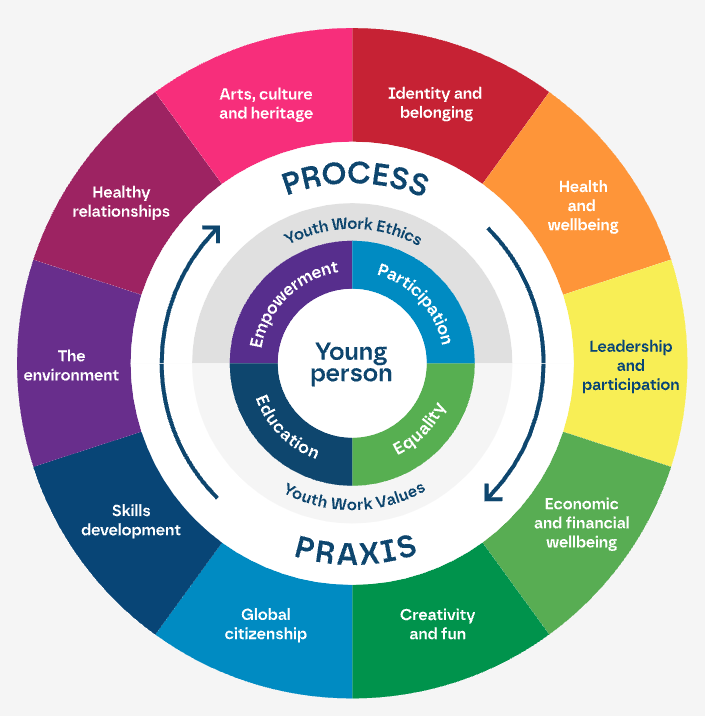
Source: National Youth Agency, see
https://nya.org.uk/national-youth-work-curriculum/#
-
Education: Young people are not empty vessels to be filled with our ‘adult’ knowledge. This is a challenge for us in church where the prevailing model is one person sharing with passive receivers. When have we been the imparters and not expected to receive knowledge in return? We should be sharing knowledge and experience together.
-
Equality: When we look at young people, do we see Christ? Do we ever audit our work through the lenses of others not like us? Is it accessible? How accessible do we make the cross?
-
Participation: God invites our participation, it’s part of who God is. Where do you stand on the ladder of participation when ministering with young people?
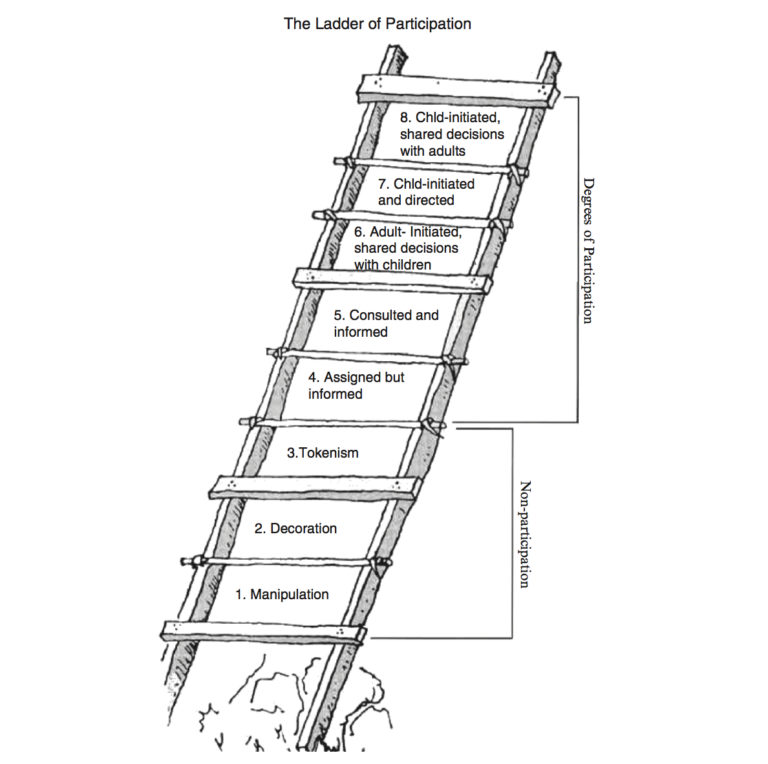
Source: Roger Hart’s 1992 illustration of the Ladder of Children’s Participation from Children’s Participation: From Tokenism to Citizenship. see
https://organizingengagement.org/models/ladder-of-childrens-participation/
-
Empowerment: giving up our space so other can find theirs. God limited God’s self (i.e. incarnation), what does that mean for us? We have an adult understanding of power, but children have a subversive power (for example a baby’s cry). How can we help young people find their subversive power? Amie facilitated a discussion on the challenges of youth participation when there are different cultures and helped us reflect on what participation looks like when young people are in crisis.
Culture aspect: How does this work with youth from different cultures? Do we have a pre-conceived format of youth work and church? How helpful or unhelpful is that? Crisis aspect: What does participation look like in crisis, trauma? How do we empower our young people in the space of crisis and trauma?
The small group’s conversations focused on the importance of creating and hosting a safe space for youth and modelling vulnerability as leaders.
Can belonging happen online?
Andrew Ginn and Isabella Senior considered 18-35 year olds, focus on belonging through different life stages. They offered the question:
how can belonging happen in church settings after people leave school, when they navigate relationships and in the digital world?
Andrew started the discussion sharing about inner child theory and the impact of someone’s childhood in their adult life. This is particularly felt in the young adult years as people become more aware of their family dynamics, traumas and losses. Isabella shared that there is a struggle to fully belong anywhere as young adults’ lives are hugely varied. Only half of 18-year-olds are at university, there is a mix of Gen Z and Millennials and not all in their late 20s and 30s are married and having children. There is a loneliness epidemic among these age groups. Churches struggle to nurture young adults and can sometimes be hostile to them with unhelpful assumptions. We looked at these themes below in groups:
-
Finished school, what’s next? This used to be a more obvious trajectory in the past, but it can now be a brutal phase with a lot of uncertainty and pressure. There are young adults away at uni, others at uni but living at home, those who didn’t go to uni and don’t fit in with our usual church moulds. How can we help them transition to work life well? Intentionality and friendships across generations (intergenerational church) can be key in this season. Formal and informal mentoring can be very helpful too. Part of our jobs is also helping young adults move away from the church consumer mentality. There’s also work to be done with older generations in understanding the unique challenges of the lives of Gen Z and Millennials and that they actually want to connect with older generations.
-
Singleness, relationships and family How do we engage with those outside of our own situation? Don’t assume that a single person is unhappy, that a married couple is happy or that a married couple will have children. There is so much value in having authentic relationships with people at different ages, marital status and stages of life.
-
Digital engagement How can we integrate online and physical? Can belonging happen online? We reflected on whether we can be incarnational online. It’s important to remember the reality that people are online and reaching them where they are is mission too. Perhaps we should empower digital natives to create spaces of belonging online. However, there is fear in how we do this well and the urgent need for moderation as the wellbeing of young adults is being damaged in the digital world as well.
There is a recognition that churches have done the transition from youth to young adult very badly. How can we improve this? Insights shared included getting youth workers/volunteers and young adults to support older youth in the transition and giving the opportunity for older youth to attend both youth and young adult events for a while before they leave the youth group. It’s crucial to be strategic and intentional in connecting with older youth and young adults. We also mentioned how communicating the dynamics change from youth leader to peer or mentor can help as well.
Our conclusions reflected on the positive impact of an intergenerational community journeying together and walking alongside young adults in all the different stages of life they find themselves in.
Joint Children, Young People and Families and Young Adults Round Table October 2024